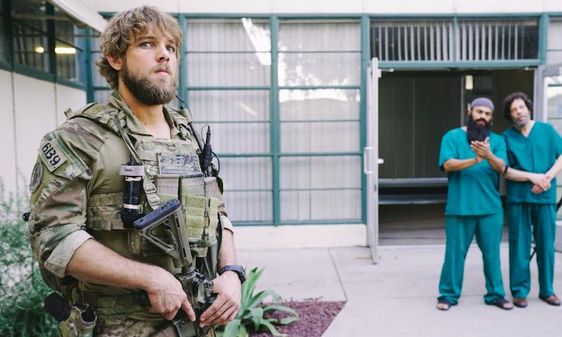
‘SEAL Team’s David Boreanaz on Why He Wanted Season 7 to Be Its Last
In the final season of the Paramount+ series SEAL Team, Master Chief Special Warfare Operator Jason Hayes (David Boreanaz) and his elite BRAVO unit of Navy SEALs have fought their way off the sidelines and back into the field. Dealing with a traumatic brain injury and a new team member that has shaken things up and caused some tension is a distraction that could prove deadly when you’re working to execute dangerous, high-stakes missions. At a time when the team must stick together more than ever, Jason is also working to prioritize his family, so they feel less like an afterthought.
During this one-on-one interview with Collider, Boreanaz, who is also an executive producer, talked about why being a part of SEAL Team is a humbling experience, what made him decide Season 7 would be his last playing Jason Hayes, what he’s most proud of accomplishing with the series, shaking things up with a new team member, pulling off some of the most intense action scenes, and the very real possibility that his character might not make it to the end of the season. He also talked about how he’s working to develop various projects, and why he would be interested in a possible revival of Bones, if that were ever to happen.

David Boreanaz Was Physically and Mentally Ready for ‘SEAL Team’ to End With Season 7
DAVID BOREANAZ: Yeah, there’s definitely a lot of trauma that we’ve experienced with Jason Hayes, for so many seasons. Eight years has just contributed to the authenticity that has led to a remarkable outpouring of, “Thank you for putting the light on that darkness. Thanks for saving my life. Thanks for helping me get help.” That’s just a tremendous, humbling experience to be part of. For us this season, it’s an intense dive into how these guys deal with their first kill, how that haunts them, and how they deal with that. That’s something that many of them suffer with highly and that brings out nightmares and trauma.

I decided to end the show the way I wanted to end the show with the character. It was over for me. I knew that, and that’s what I expressed to them. I was like, “I’m done, both physically and mentally.” It’s very difficult to portray these types of emotions, day in day out, when you’re shooting them. So, from my perspective, as an actor playing these emotions, I can only imagine how they are for those that are actually living it. The help that is there, is there, but it takes time. There’s a process to it. There’s a grieving to it. Ultimately, I don’t think it ever really goes away, but you can have an understanding of how to manage that through consistency and discipline. That is what we want to show in these stories for this season. I know, for a fact, that happens. From my character’s perspective, does he make it? I don’t know. He may not make it. He may succumb to the battlefield. He may ultimately die on the field of the sword. That’s on the plate for him.